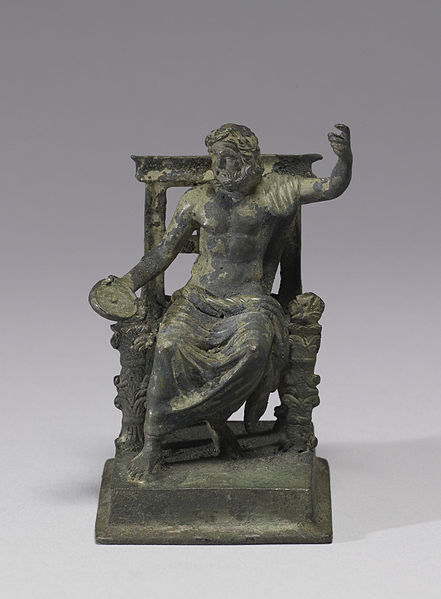Another polytheistic society was Rome. The Romans borrowed the gods and goddesses of the Greeks, as well as some from other civilizations like the Egyptians. All of these deities were added to the Roman pantheon, the group of gods and goddesses to whom Romans could appeal for help with day-to-day problems.
While they were very serious about religion, the Romans were more practical about worship than other cultures. Their communications with gods and goddesses tended to focus on requests for help with an individual's wants and needs. If one deity didn't prove helpful, a Roman worshiper might turn to another one, hoping that god or goddess would be more willing to assist them. Learn more about Roman religion as you click on each image below.
These images illustrate the Roman pantheon.

|

|
 Walters Art Museum [Public domain, CC-BY-SA-3.0 (http://creativecommons.org/licenses/by-sa/3.0) or GFDL (http://www.gnu.org/copyleft/fdl.html)], via Wikimedia Commons |
Question
What was practical about the Roman approach to worship?
Question
Why did the Romans refuse to accept Christianity at first?
